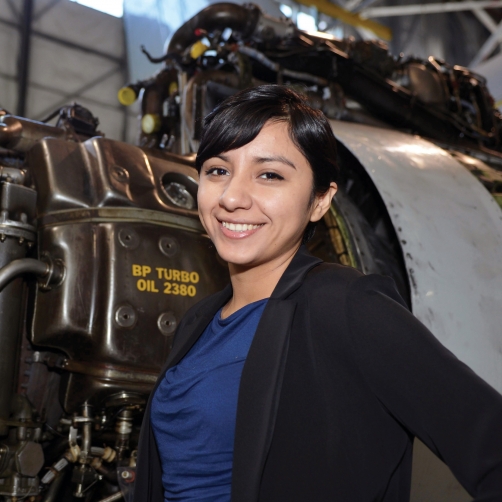
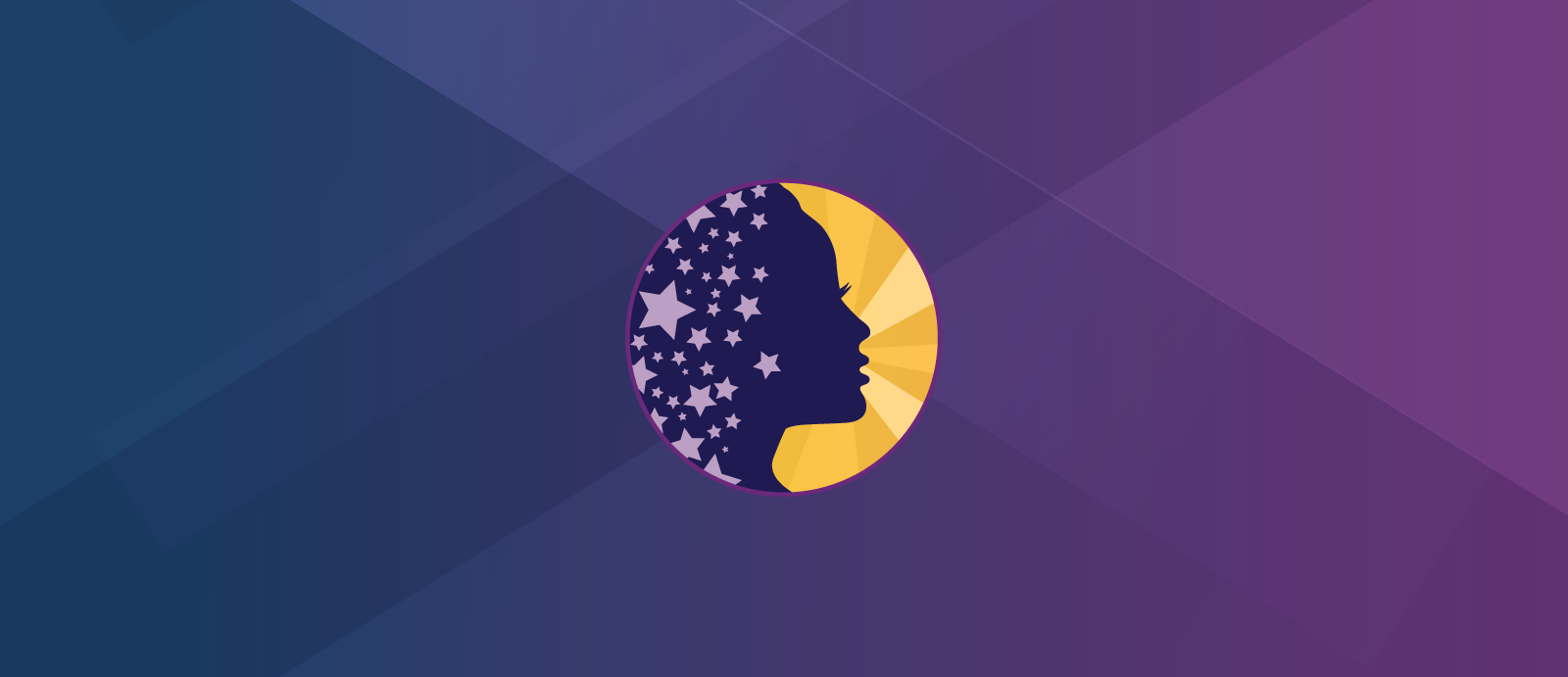
Our Voices, Our Vote: A Century of Women Leading Change
In August 1920, 70 years after women protested and petitioned for the right to vote, the Constitution's 19th Amendment guaranteeing that right was adopted.
In 2020, Lincoln Laboratory marked the anniversary of this historic milestone with a series of events to support the continuing march toward equality for all citizens. As part of these events, a set of banners was created to shine a spotlight on some of the talented women who contribute to the Laboratory's mission to develop innovative technology and transition it to operational use in order to enhance national security. These ten women are only a small fraction of the thousands of women who have been enabling the Laboratory's vital work since 1951.

Yari has never looked back
Yari Golden-Castano
When Yari was 16, she asked her science teacher at Ganesha High School in Pamona, California, "What do I need to do to become an engineer and an astronaut?"
The teacher replied, "What? Are you high? You can't become an engineer or an astronaut, you're a girl. That work is too difficult for someone like you. You need to apply to a liberal arts college; engineering is too difficult for girls."
Yari went home angry and determined to research her interest. At the local library, she checked out a book on Christa McAulliffe's life as a science teacher and astronaut. She discovered what to do!
She attended Smith College and earned a bachelor's degree in science and engineering with a minor in physics. In 2010, she joined MIT Lincoln Laboratory as a data analyst, focusing on research, data evaluation, and algorithm development in the Weather Sensing Group.
She later moved to the Engineering Division, where she worked on the optical module for an expandable nanosatellite and with a team developing software and controls for an optical communication project. She now works as a systems engineer on the assembly, integration, and testing for another optical communication system.
Recognition
Yari applied to Mars One: Human Settlement of Mars Project and is one of the final 100 candidates for the mission. Her story about becoming a potential Mars colonizer was filmed for Honda's campaign "Greatness Within Reach." In 2016, she received the 30 Under 30 Most Influential Latinos in the Community Award from El Mundo Boston.
Paying It Forward
Yari addresses more than 500 middle school and high school girls each year through engineering, math, and cyber workshops. She tells the girls the stereotypes she overcame and says to them, “Don’t ever let anyone tell you that you cannot do something or be something because you are a girl. I’m proof of that reality. You can achieve anything as long as you set your mind to your goals.”
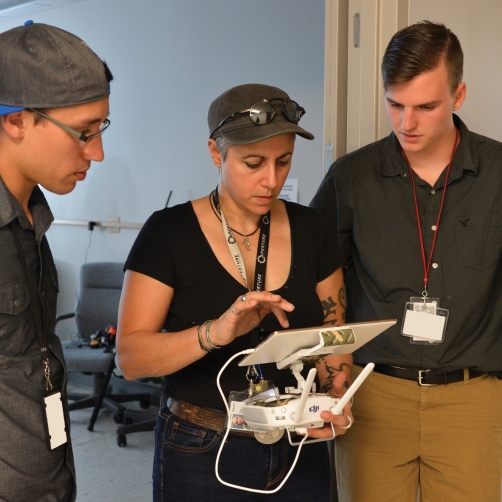
Amna values collaboration
Amna Greaves
Lincoln Laboratory's researchers often directly interface with boots-on-the-ground end users who have no hesitation in telling it like it is. Amna considers this interaction probably the best part of the job, working with people who want and need the Lab's help, and including them in the development as the project evolves.
Amna’s work is currently focused on artificial intelligence technologies and architectures for systems used by the military and first responders. "Knowing that the technology we're building is going into the hands of stakeholders we've met is a powerful rush. Getting to experience a slice of their life, and knowing we can make a difference in dirty, dangerous, physically and emotionally challenging environments and situations humanizes what is often a very abstract job that revolves around getting data from point A to B," she explains.
On labels
Amna is a mechanical engineer, originally from a controls and robotics background. Because she designs software systems, people automatically think that she's a computer scientist. But she doesn't feel constrained by a label at the Lab: "We're all technologists here, focused on applying what we know to make America stronger, safer, and more capable."
On the future for women in STEM
In her three decades as an engineer, Amna has seen attitudes to women in technical fields evolve positively, albeit slowly. Project teams and critical meetings may still include only a few women, but it's better than it was, and the tomorrows will be better than it is today. She notes that Lincoln Laboratory is demonstrating leadership in both gender and sexual-orientation equity. "I believe we will be among the first of our peer organizations to have women at the highest level of management."
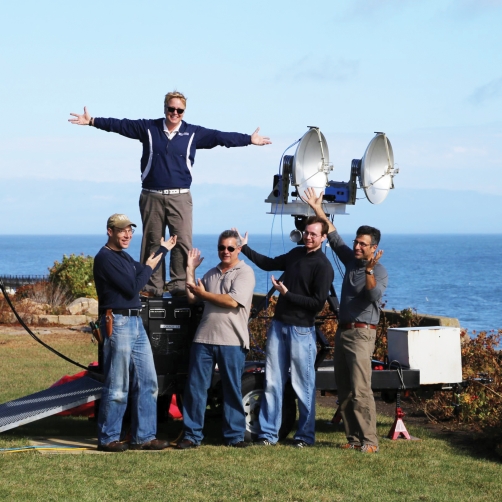
Molly celebrates continual growth
Molly Crane
"Every day, I have opportunities to teach something and learn something new. What beauty that is!" says Molly Crane, whose work at Lincoln Laboratory has spanned systems analysis of large-scale sensors, signal processing of radar data, and signal processing for image construction.
The interdisciplinary nature of the Lab's projects and the Lab's depth of expertise in so many different scientific fields allows Molly and her teammates not only to expand their knowledge but to push the bounds of technological capabilities. "It's been rewarding to work with my brilliant, capable, and collaborative teams to make a positive impact on our nation's security," she says.
Atypical career path
Molly's road to developing technology was a nontraditional journey. She studied literature, both English and comparative, as an undergrad and after graduation taught high school English and math. A few years later, she returned to school to explore another interest — engineering. While starting advanced degree work without an undergrad background in a STEM field was at first daunting, she earned a doctoral degree in electrical engineering. "I've come to realize that my background in English is a very unique asset. Being both left- and right-brained is more rare than I'd once realized, and I've learned to leverage this to benefit both the Laboratory and myself."
Be confident!
As someone who took a risk when she changed careers, Molly advises, "Don't second-guess yourself. Many times you'll be right, but it's also okay to be wrong. Being wrong sometimes is an important part of doing research, and an even more important part of learning."
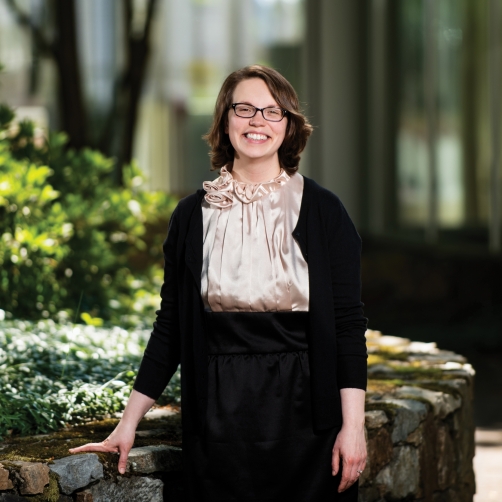
Opportunity strikes
Elizabeth Swift
After completing her master’s degree in Library Science, Elizabeth was interested in pursuing a second degree in Project Management. Luckily, the Laboratory’s part-time graduate studies program allowed her to earn a degree faster and apply her newfound knowledge to her work. As both a project manager and librarian, Elizabeth harnessed her aptitude for listening and planning and found that both skills are key to understanding requirements and needs.
Share your ideas
Elizabeth has had the opportunity to stretch her skills at the Lab. "Colleagues have fostered my growth and have willingly shared their expertise," Elizabeth says. "They’ve encouraged me to speak up. Everyone has an important perspective and contribution. Be brave and share your ideas!" Elizabeth maintains that women often sell themselves short and are more likely to highlight a team’s successes than their own. Although this may work in a woman’s favor when she is put in a leadership role, it may not get her there. "Women must learn how to speak better about ourselves and our accomplishments," she says.
Break traditional gender roles
Elizabeth explains that some people find it surprising that she has a master's degree in Library and Information Science. "I've heard many times, 'You need a master's degree for that?'," she says. In a field composed of over 80% women, the comment is tinged with bias. Yet she doesn’t get the same reaction when she talks about her degree in Project Management. In this line of work, less than 30% are women. It shows the stark contrast in views. For the next generation, Elizabeth hopes to see the breakdown of traditional gender roles and the line between what's considered a woman's job and a man's job. She says "There should be no overt or hidden barriers to people's interests and what people want to pursue."
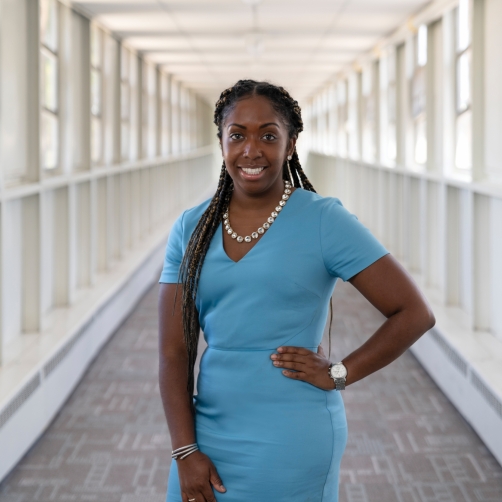
Every challenge is a chance
Narissa Clarke
Narissa Clarke thrives on teachable moments. She has learned to see challenges not as a barrier, but as a way to learn and improve. Even so, her biggest professional challenge has been receiving proper recognition for a job well done. "As a woman, it can be difficult to gain credibility and respect in the workforce, however, being a woman of color is a second hurdle I've learned to overcome," says Narissa. "I've learned how to be confident but not overshadow others. I've learned to discover my weaknesses and turn them into valuable strengths." These strengths aid her in her position as a Business Manager in the Information Integration and Decision Support Group, where she manages all aspects of the group's administrative and business functions.
Commit to your passion
Part of Narissa's strength and confidence comes from the various affinity groups she belongs to, especially the Laboratory's ERGs (employment resource groups). These ERGs offer the chance to be with others who may have faced similar challenges and to learn about methods of coping, different viewpoints, and various ways to be empowered. "I have found ERGs particularly valuable," says Narissa. Through ERGs, she says, "I've realized you have to commit to your passion and not take no for an answer."
Hopes for the future
In the future, Narissa hopes to see more diverse representation of women in high-level management roles that are representative of the demographic of their workforce. Outreach programs and seminars that encourage women to become entrepreneurs and fields that are predominantly men driven would be a step in that direction. Women's roles in business, technology, and leadership have evolved drastically over the past few decades, but there is always more room for growth and improvement. Narissa adds, "Our society is forever changing which is a great chance to show how successful women can be!"
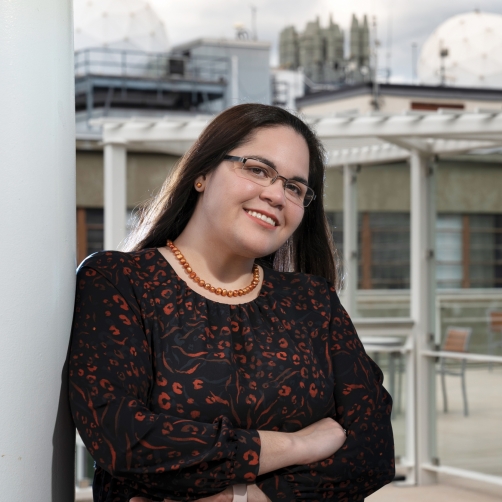
Never give up!
Jarilyn Hernandez-Jimenez
Even as a young girl, Jarilyn had an interest in computing, but her dream to work in a technological field almost fell apart while in graduate school. Biased colleagues questioned her ability to succeed because she is Hispanic. Nevertheless, she continued towards her goal. "It wasn't easy. I was forced to make difficult decisions, but it made me stronger," she says Today, Jarilyn works in cybersecurity for Lincoln Laboratory.
Jarilyn wouldn't have accomplished her goal without persistence. She had to overcome her fear of being ridiculed when sharing ideas, but she worked hard at developing confidence in her work. Her advice for women is to not be afraid to ask questions; finding a good mentor who will share their expertise can help.
Overcoming barriers
One of the most significant barriers for women in STEM fields is stereotyping. Jarilyn believes that we can overcome the false belief that women are less competent in fields like mathematics and science by increasing representation and diversity in industry, government, and academic leadership.
"I hope to see continued growth in activities that expose girls to STEM fields, such as conferences, hands-on activities, and internships. These opportunities should be for everyone. It's important to create awareness among boys and men that it's okay for women to pursue STEM fields," says Jarilyn. "Men should be encouraged to support women in these fields."
Lincoln Laboratory offers many opportunities to engage in outreach with young students. Through the G.I.R.L. program, Jarilyn volunteered to help with a cybersecurity workshop to introduce middle school girls to cybersecurity. She says, "It was enriching to see that first spark in students when they realize they might be interested in technology and science!"
Never give up!
Jarilyn's advice to women trying to break into STEM fields is to never give up. She says, "They will encounter ups and downs. They will question whether they chose the right career. They will question if it is worth the hassle. I can say that, for me, it was worth it," and hopefully sharing these experiences can serve as a motivation for the next generation of women pursuing a STEM field.
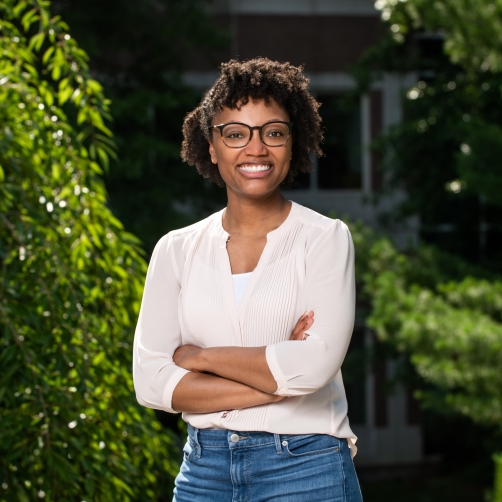
Forge your own path
Crystal Jackson
Crystal Jackson could have worried about being different. "I got teased for doing well in grade school, but I was fortunate to find a core set of friends who didn't care how much of a nerd I was. I also had teachers who pushed me to take the more difficult classes even though none of my friends were in those classes." But Crystal followed her own advice: "Don't be afraid to stand out." She forged her own path, took classes as recommended, and now works as a computer scientist in the Advanced Satcom Systems and Operations Group.
Don't Give Up!
Although she initially intended to study healthcare, Crystal changed her mind and decided to pursue engineering solely based on her love of math, video games , and computers, despite never having met an engineer. She didn't give up in difficult times — even though classes were tough, she practiced coding and correcting her own code. As an undergraduate, she asked a professor for clarification on an assignment, to which he replied, "This is the type of assignment that separates the boys from the men." Crystal said, "I was determined to prove that I was up for the challenge!"
One of Crystal's daily inspirations is seeing confident women in the workplace. Since coming to Lincoln Laboratory, almost all of the programs she has worked on were led or managed by women. "Not only do I strive to be technically excellent, like them, I also admire their self-assurance," she says. "I admire and strive for the traits I see in the women that I know. As someone who suffers from imposter syndrome*, I am constantly trying to strike a balance between 'faking it till I make it' while also being my true authentic self."
*Imposter syndrome is a behavior where people doubt their accomplishments and have a fear of being exposed as a fraud. Not an actual disorder, the term describes individuals who incorrectly attribute their success to luck, or interpret it as a result of deceiving others into thinking they are more intelligent than they perceive themselves to be. A 2006 study concluded that women experienced impostor phenomenon more so than men.
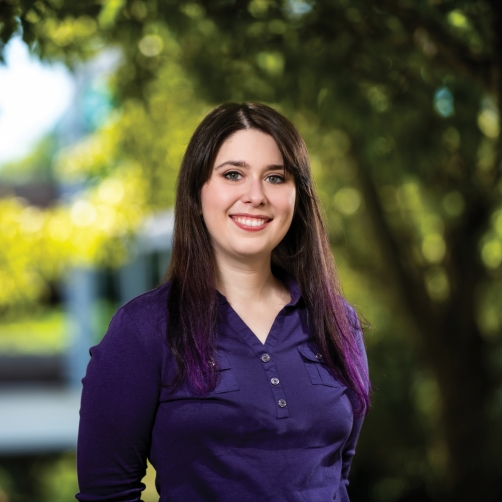
Go after what you love
Era Vuksani
Era emigrated from Albania when she was 12. Being in America meant she had many opportunities that she previously wouldn't have dreamed of, like getting a college education and becoming a coder. She says, "Having a choice to do something is an opportunity that women did not have in the past, especially in other countries." Era knew she loved coding, started coding websites for fun, and chose to turn it into a career in cyber security.
Era shares her advice for a great career: "Don't stop going after what you love! If you're not getting where you need to be, don't be afraid to change course and try something else." She adds a personal lesson she learned while in graduate school. "Be flexible! If something is not working out, then change is necessary. Sometimes waiting for change is not the right approach, and you need to do what is right for yourself."
Learn by example
In the future, Era would like to see more women promoted to higher positions. Seeing examples in the Lab helps people identify what to strive for, and the Lab has been doing a great job providing those examples. There are many women who have made a personal impact on Era's career at the Lab, such as Diane Staheli, Martine Kalke, and Allison Chang; "Women," Era says, "who believed in me when others did not. I admire them because of how they treat their employees with care and attention. I try to follow their example and be a little more like them."
Not one to be content with "good enough," Era continuously works to be better, both as a coder and as a human being, but she doesn't dwell on the past. She believes that "people sometimes focus on how far they've come, but don't realize there are still new challenges ahead." Her advice is to recognize how far you've come, but keep exploring new challenges that will help you grow.
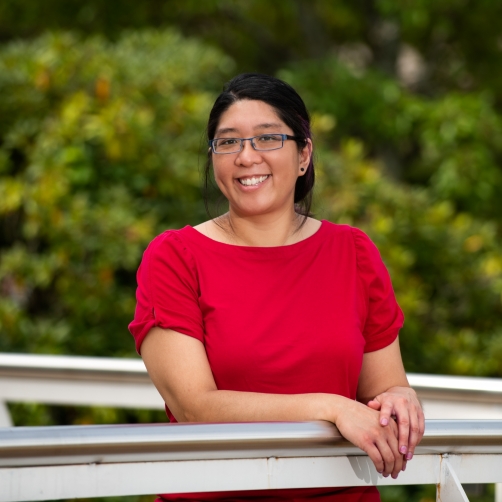
A passion for photonics began Jade's career at the Lab
Jade Wang
When Jade interviewed at Lincoln Laboratory for a student internship, she toured a laboratory in which researchers were working on optical communication systems. She ended up spending the next seven years of her life in that lab where staff have been developing ultrafast optical switching technology. "They were doing groundbreaking work, pushing the envelope of what was possible in optical switching, to enable new and better functionality for communications networks. I was hooked," she recalls. "I really love how this field sits at the intersection of engineering and basic physics. In what we do, it doesn't take much to go from 'How do we engineer this?' to a discussion of fairly fundamental physics."
Keeping a work/life balance
Jade spent several years working on an intense program that had tight deadlines for the deliverables. Her team constantly put in extra hours, and the pace was exhausting. It was challenging for them to balance the desire to make the program a success with the needs in their personal lives. Jade admits achieving a balance remains a struggle, "But I now realize that it is important to take time away from work to rest and recuperate. A burst of effort for a period of time is reasonable, but not if it becomes a daily thing." Now an Assistant Group Leader in the group she joined 19 years ago as an undergraduate from MIT, she advises young women, "Don't hesitate to ask colleagues for help because sometimes a quick discussion with an expert can save you hours of wasted time."
Valuing the culture and mission
Jade says she has always enjoyed the atmosphere of growth and learning at the Laboratory. In addition, she says that the Laboratory's responses to recent events and challenges — the COVID-19 pandemic and the protests against systemic racism in America today — "have shown me that we are able to bring to bear significant resources, creativity, and flexibility to any challenge, which makes me proud to work here. I hope that we continue to grow and learn, and that we can continue to make a deep impact on national security and strengthen our country together."
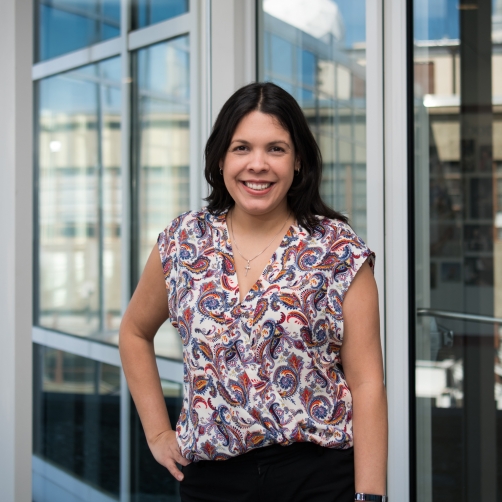
Letting one's voice be heard
Karen Gettings
Karen’s initial curiosity about electrical engineering came from seeing her brother, an electrical engineer, as a role model. She gravitated toward microelectronics during her doctoral research because of the varied and fascinating applications of integrated circuits. She is currently conducting R&D on integrated circuits and systems that focus on low power optimization, and enjoys working on cutting-edge technology that is not widely available. "I like that my work shapes future technologies," she says.
Speaking up
"I feel that my Puerto Rican accent and soft voice impeded getting my point across in discussions early in my career. I have learned to speak more loudly and clearly, and to not shy away from sharing my opinion in meetings," Karen recalls. At Lincoln Laboratory, she has also gotten involved in speaking up for diversity and inclusion. She helped lead the Laboratory's establishment of the Hispanic/Latinx Network, an employee resource group that fosters awareness of Hispanic culture and provides networking and social opportunities. She has volunteered at the Lab's educational outreach activities because she has seen "that many young women and underrepresented groups lack role models that look like them in engineering."
Securing the right to vote
Karen appreciates the importance of the amendment granting women the right to vote, but she also would like to see awareness raised about the ineligibility of millions of citizens to vote for federal officials because of where they live. She explains that citizens who reside in territories like Puerto Rico cannot cast ballots in U.S. presidential elections. "My father was born a U.S. citizen, was drafted to Vietnam, was awarded a Purple Heart, worked for 30 years in education, is a model citizen, and has never been allowed to vote for the president only because he lives in Puerto Rico. It would have been the same for me had I stayed in the island; I can vote now because I moved to Massachusetts."